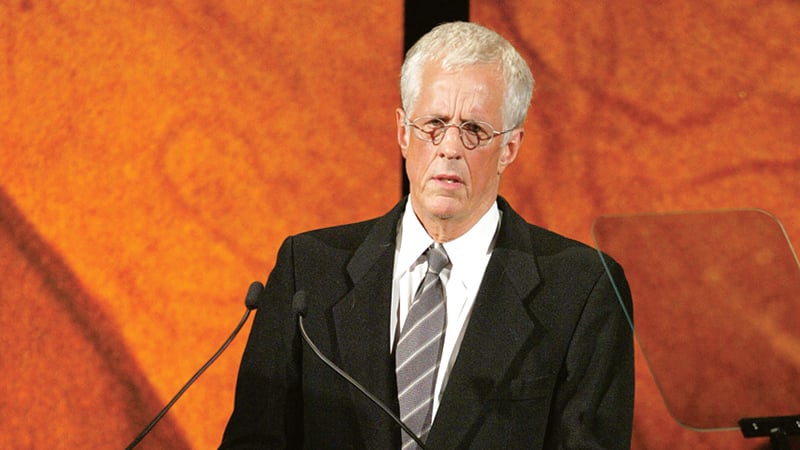The DGA Basic Agreement (BA) and Freelance Live and Tape Television Agreement (FLTTA) codify creative and economic terms for all members working on feature films and entertainment television programs. The current contracts expire on June 30, 2005 and the parties began formal negotiations on August 23, 2004. The DGA had been working on its proposals since early in the year and informal preliminary talks had begun earlier this summer.
"We walked into negotiations with two goals in mind - getting the best possible deal for our members and keeping our members and the industry working," said Gil Cates. "And we were successful on both counts. From the start, the central issue our Guild sought to address in this round of negotiations was to resolve the crisis facing our Health Plan and protect the health benefits of our members, retirees and their families.
I am proud to announce that in addition to successfully funding our Health Plan and keeping our members and the industry working, the total economic benefits package we have negotiated is the largest in Guild history."
The DGA Health Plan, like most health care plans across the country, was in future financial peril due to projected annual double-digit cost increases, which would have resulted in the Plan being without funds to pay benefits by 2008. "We had no choice but to create a solution that addressed spiraling health care costs during this round of negotiations," stated Cates. "We have taken a Health Plan that was projected to have run through its reserves by 2008 to one that will have a healthy reserve of more than $40 million.
"Reaching resolution on these issues required leadership and perseverance. The DGA National Executive Director Jay Roth, his staff and the entire Negotiating Committee should be commended for their stewardship in securing what is truly important to DGA members and retirees — protecting their health and the health of their families."
DGA President Michael Apted stressed the success the Guild has achieved with this strategy. "Everyone at the table recognized what was at stake for our membership and for the industry as a whole. Early negotiations offered both the opportunity for Gil and the negotiating team to get the best possible deal - the proof of which is in the significant gains in health care, wage increases and creative rights made today on behalf of our members. This deal not only resulted in significant gains for our members, it also reaffirms that good deals can be made early between labor and employers — keeping our members and the industry working."
"At the end of the day this is an excellent deal for DGA members — and for the industry" added DGA National Executive Director Jay D. Roth. "Health care is an issue that affects each and every one of our members — and each and every one of our members will benefit from the deal we negotiated this year. We appreciate that the employers recognized the importance of this issue and I am proud to have been a part of negotiating this successful deal on behalf of our members."
Some of the highlights of the economic agreement include wage and residual increases, feature director health care cap increases, solution of long-standing episodic television residency issues, improving conditions for below the line members in multi-camera dramatic programming, new economic provisions on use of excerpts in interactive games and future studio by studio meetings regarding utilization of UPMs.
Some of the creative rights for film and television directors that were negotiated by the DGA Creative Rights Committee (led by co-chairs Steven Soderbergh and Jonathan Mostow) include new protections for directors of feature film and long form television in connection with DVD releases; new guarantees of director participation in the ratings process; and agreements to investigate the impact of visual effects (VFX) on the filmmaking process and to discuss new approaches to credits issues.
The Television Creative Rights Committee made singular achievements in agreements to continue the highly successful campaign to ensure timely script delivery in episodic television — with an added financial penalty for egregiously non-compliant productions; and to initiate long overdue efforts to improve public recognition of directors of television pilots. Additional provisions improve directors' ability to manage their sets and television movie directors' participation in looping.
The Guild also agreed with the producers to aid efforts to promote and launch new dramatic programming. The new agreement will provide for a free use of the first two episodes in the two-month period after initial exhibition and for a one-year deferral of below the line wage increases in new one hour series. Cates said, "Dramatic television programming is the lifeblood of many of our director members and their teams. It is in the best interest of the Guild to ensure that we do all we can to strengthen the success of dramatic programs in their first season."
President Apted also addressed the DGA's position on the issue of home video residual formulas. "After careful consideration and intensive research, our view is that this is the wrong issue at the wrong time for our Guild. The reality is that our members are earning unprecedented residuals. Residuals for our members have grown from $36 million in 1984 to $225 million in 2003. Since 2000 alone, home video residuals for our members, including DVD, have grown from $29 million to $53 million, a 54% increase. In fact, in the last year alone, our members' home video residuals have grown by 35%. When we looked further, we saw a residual system that paid our members without regard to the performance of their films. Directors have continued to receive substantial residuals payments whether or not their pictures are profitable. The current formula ensures that all our members are being compensated for the re-use of their work. At this time, we do not feel that it is worth risking this system that rewards all of our members.
Cates concluded: "Rather than focus our energy in an area where seeking change is both complex and risky and where our members are already prospering, we addressed the most pressing concern affecting all our members - ensuring that their health care is protected."
The Network Agreement, which also expires on June 30, 2005, covers staff and freelance members employed in news, sports and operations at the companies' television networks and at a number of their owned television stations. The agreements contain improvements in key economic areas and protect DGA jurisdiction and jobs while addressing network operational and technological concerns. The negotiations began in August 2004.
"Not only were we able to obtain wage increases on behalf of our members for the next three years, we were able to achieve significant health care improvements for freelance employees," said William M. Brady. "The Guild's leadership position in the industry, the committee's careful and acute attention to change in our field, and the Networks' recognition of the quality of the DGA member, allowed us to work together to build a strong, yet flexible and mature contract."
DGA President Michael Apted formally announced the deal on Wednesday, September 29, at the Fifth Annual DGA Honors Gala. "This has been a great month for DGA members and for me as their president," said Apted. "Last week we announced our tentative agreement with the studios and today I am proud to announce that we have reached a tentative agreement with the networks on behalf of our members who work in news, sports and operations. Considering the significant health and wage gains we were able to achieve with the studios, and now the networks, I am proud of what the Guild has been able to accomplish on behalf our members."
Russell Hollander, the DGA's Eastern Executive Director added, "Our goal was to protect our members' health care — and with health rate increases kicking in early on January 1, 2005, with an additional increase in January, 2006 — we have given our members and the DGA's Health Plan an extra six months of health care gains that would not have happened if we had negotiated up to the deadline."





